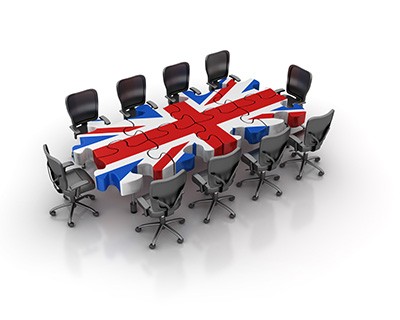The big question is: Has the Prime Minister set herself up to fail or will the EU be willing to reopen talks in fear of a no-deal?
Since 2016, Brexit has been one of the most nuanced topics throughout the country. With a 52/48 split, it was never going to be an easy task for anyone. However, it is slowly looking like the end is in sight with the Parliament finally agreeing on a ‘deal in principle.’ If Theresa May can amend the backstop by either including an option to unilaterally leave or remove it altogether, the UK will be one step closer to departing the EU.
So why won’t the EU reopen negotiation talks? Is the backstop really non-negotiable? And what happens when the UK pushes for reopen, and the EU declines? Are there strategic and beneficial actions taking place behind the scenes? The concerns regarding the final outcome are endless.
Deal or no deal?
There is less than two months until the UK leaves the EU which puts a lot of pressure on the Government to secure a deal before the Brexit day. However, if the Government fails to achieve the expected result, the next option by default will be a no-deal, leaving businesses and politicians in a state of frenzy.
So May’s main aim will be to reopen the talks that both Michel Barnier and Donald Tusk have said are firmly closed. To do this, she will have to offer something to the EU that is attractive enough for them to want to reopen talks about removing the backstop.

The divorce bill could come into play here, with the UK Government offering £39 billion to the EU in order to leave. This was agreed before any negotiations took place, setting the money in stone rather than in principle before the two parties even entered discussions about what was included in the scope that warranted such a huge payment.
Sensibly, the £39 billion should have been offered for the full scope of the deal and the price of the divorce bill should reflect any negotiation.
The backstop is in place to ensure that businesses aren’t left hanging over the cliff edge when it comes to the end of the implementation period. If a trade deal has been reached, it won’t be necessary, however, with no-deal the backstop will come into play to ensure that businesses won’t be faced with hefty tariffs overnight.
In order to remove this safety feature without increasing the divorce bill, May might have to agree that the UK will stay a member of the customs union and single market.
Keys to a successful negotiation
The key thing would be for both May and the EU to reconsider their approach toward negotiations and head back to the basics. This could be to reassess what both parties are looking to achieve when it comes to the backstop and what impact it might have on the island of Ireland.
Negotiations are about achieving a compromise and focusing on what is mutually beneficial to both parties.
It is vital that their language and verbal behaviour remain nuanced, open and flexible in order to create the positive climate. With May now having a Parliamentary majority over this, there is a possibility for her to go back to the EU and explain that the only way to progress with a deal or a no-deal is to negotiate the opportunities with careful and strategic techniques.
May’s next steps
May will have to sell the planned concessions she makes to the Conservative members—with many MPs still being wary of the deal and unsure whether the backstop is enough.
The most crucial time for any negotiation is when they’re close to being agreed and is when both parties will try and last-minute rule in their favour, hoping that the looming deadline will encourage the other party to agree as well. May must remain strong when it comes to the UK’s interests and not try to change the deal in the very last minute. After all, successful negotiations are only built on a diplomatic and a strategic approach. And whether this will happen or not–only time will tell.

